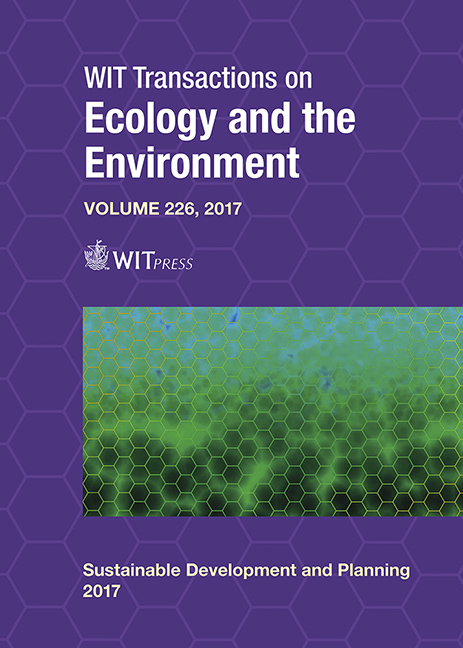MUNICIPAL COASTAL GOVERNANCE TOWARDS RURAL COMMUNITY RESILIENCE DEVELOPMENT: SCENARIOS AND TOOLS
Price
Free (open access)
Transaction
Volume
226
Pages
13
Page Range
297 - 309
Published
2017
Size
320 kb
Paper DOI
10.2495/SDP170261
Copyright
WIT Press
Author(s)
ĒRIKA LAGZDIŅA, IVARS KUDREŅICKIS, RAIMONDS ERNŠTEINS, ANITA LONTONE
Abstract
Coastal systems are complex resources systems based on interconnected elements of nature, economic, social, cultural, and, importantly, governance resources. Governance of the coastal territories as socio-ecological systems shall be integrated, holistic, multi-faceted and multi-level process oriented. Studies in Latvia identify insufficient knowledge/skills and even understanding/interest of decision-makers and administrations to deal with integrated coastal management (ICM) at all levels, and, particularly, with integration of the coastal problematic into mandatory development planning processes. Governance capacity is especially critical in rural coastal municipalities often with also long coastlines, making above 80% altogether of the total national coast length; a subsequent need to find appropriate rural coastal governance models is evident. Within EU BONUS BaltCoast project, including most of Baltic Sea region countries, the System Approach Framework is tested in the national pilot territories, and, in Latvia, the Salacgriva municipality pilot as for rural coastal governance development case. Research activities demonstrate transition from individual isolated studies to integrated comprehensive multidisciplinary coastal research. Within this study the effective coastal governance scenarios approaches, tools, and development opportunities were analysed studying main generic governance development approaches. Analysis shows that none of top-down and bottom-up governance improvement scenarios alone can ensure effective rural coastal governance, and, obviously, collaborative governance scenarios (CGSs) shall be designed and implemented to really improve ICM, but the selection of adequate instruments for this could be seen as the issue. Research-and-development work addresses the following locally based coastal governance instruments which have to be complementary included in the CGS, namely – coastal science and governance report; municipal coastal collaborative monitoring programme, involving mandatory citizen science component; development of coastal indicators systems; and thematic coastal spatial plan, as all being local innovations for Latvia. These tools shall contain clearly identifiable science-based quantified numerical information, shall be integrative in their nature and succession and complementarity with other instruments.
Keywords
citizen science, coastal integrated management, collaborative governance, flood risk, indicator system, socio-ecological system, stake-holders, system approach framework, science-policy interface





